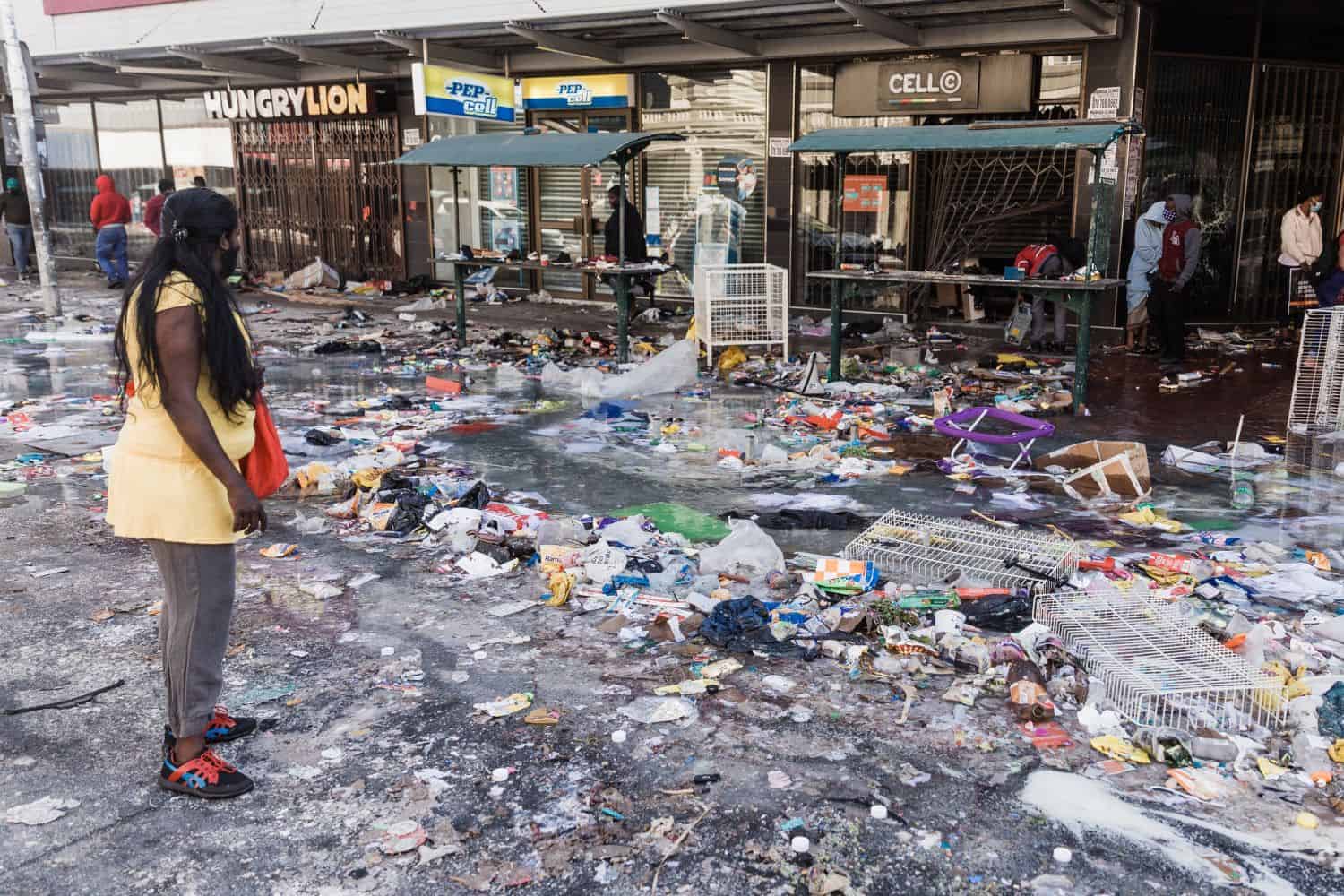
Sasria, the only non-life insurer that provides special risk cover to all individuals and businesses that own assets in South Africa, as well as government entities, is still recovering from the 2021 unrest.
It paid out millions to people and businesses who had their property damaged in the looting that ensued after former president Jacob Zuma was sent to jail.
As a government agency, Sasria had to present its annual report to parliament on Friday. In the presentation, Sasria said its profit grew by 34% to R4.5 billion, strengthening capital reserves as it eyes new climate risks.
According to the report, Sasria’s strong performance significantly strengthened the state-owned insurer’s capital base, with its own funds rising to R18.6 billion —a remarkable step towards its 2029 target of R30 billion in capital reserves.
The results highlight a period of substantial recovery and strategic realignment for Sasria, driven by robust insurance service results, favourable investment income and disciplined cost management.
ALSO READ: Sasria still recovering from 2021 riots
Sasria annual report highlights
The report showcases these financial highlights:
- Sasria’s total assets increased to R20.9 billion (2024: R16.5 billion), indicating outstanding balance sheet growth of 27.1%.
- Insurance revenue showed strong results, reaching R5.8 billion, a healthy 9.7% increase from the previous year’s R5.3 billion.
- Profit for the year reached an impressive R4.5 billion, demonstrating strong operational resilience and strategic execution, up from R3.3 billion in 2024.
- Investment income delivered strong returns of R1.3 billion (2024: R1.0 billion), benefiting from favourable interest rate conditions and strategic asset allocation.
- Accumulated losses decreased significantly from R7.9 billion in 2024 to R3.4 billion, thereby greatly enhancing Sasria’s equity position to R18.6 billion.
- Reinsurance management saw net reinsurance expenses drop significantly to R592.2 million from R1.3 billion, a combination of lower reinsurance placement due to the hardened reinsurance market and a revised quota share arrangement with a lower ceding rate of 20% compared to 42.4% previously.
- Capital strength, with assets under management growing to R16.7 billion (2024: R13.3 billion), supporting the company’s strategic aim to reach R30 billion in capital reserves by 2030.
ALSO READ: Sasria settles R12.6bn out of 14,051 claims received
Sasria on the right path to reach R30 billion capital reserves by 2030
Dirk Kunz, chief financial officer of Sasria, pointed out that the importance of these results is that Sasria’s strong financial performance positions it on the right path towards reaching its target of R30 billion in capital reserves by 2030.
He says the significant increase in Sasria’s equity to R18.6 billion from R14.1 billion shows its commitment to building financial resilience for future catastrophic events.
“Although the underlying drivers of the various perils we cover, including socio-economic conditions, unemployment and youth unemployment, were not significantly different from previous years, we were encouraged by the low level of claims expense during the period, which contributed to an improvement in net insurance service profitability.”
Sasria’s net insurance result increased by 48.9% to R2.9 billion, up from R2.0 billion in the previous year, mainly due to a notable 55.4% fall in net reinsurance expenses, which declined to R592.2 million from R1.3 billion. The decrease is linked to a new, more favourable quota share reinsurance arrangement, Kunz says.
While gross claims incurred increased to R666.3 million from R481.4 million in the previous year, the level remained manageable, contributing to a positive underwriting result. Furthermore, net investment income grew by 26% to R1.3 billion, as the company capitalised on high cash rates.
Sasria’s solid financial footing critical for its future mandate of climate risks
Mpumi Tyikwe, CEO of Sasria, highlighted the strategic implications and explained that the solid financial footing is critical for the insurer’s future mandate.
“This year marked our entry into a new strategic cycle toward Vision 2029.
“Beyond maximising capital reserves, we are introducing new profitable products and expanding our mandate to address climate-related catastrophes and emerging risks.
“Our engagement with government on these critical matters positions us as a forward-thinking institution ready for South Africa’s evolving risk landscape.
“Despite the increase in protests in recent years, they did not lead to higher claim numbers, partly due to the national campaign urging South Africans not to ‘score own goals’ by damaging their own infrastructure during protests.”
Tyikwe said Sasria expects to reach its R30 billion target within this period, putting the insurer in a strong position to withstand future shocks, including major events such as the July 2021 unrest.
“That event revealed our vulnerabilities and highlighted the vital role of specialised risk insurance in maintaining national stability.
“While this year showed a positive financial performance, we still need another three years to recover the R24 billion loss incurred in the 2021/22 financial year amid a significantly higher risk environment.”
ALSO READ: ‘Biggest in history’: State insurer blames police for R27bn loss from July riots
Sasria also earned unqualified audit
Finance minister Enoch Godongwana, who presented the integrated report in parliament, highlighted Sasria’s broader importance.
“This report provides evidence of an organisation firmly on the path to transformation, safeguarding assets and contributing significantly to socio-economic development. By investing in data intelligence and strategic partnerships, Sasria positions itself as a resilient institution aligned with emerging needs and committed to public value.”
Tyikwe pointed out that Sasria also achieved high governance standards, earning an unqualified audit opinion and maintaining full compliance with the PFMA.
The company’s Net Promoter Score reached 75, demonstrating strong stakeholder satisfaction, while claims-processing efficiency achieved a 97% rate of fast-track claims settled within 25 working days.
“These operational metrics demonstrate Sasria’s commitment to service excellence and adherence to regulatory best practices, thereby strengthening its position as a trusted partner for South African businesses and individuals seeking special risk cover.”



